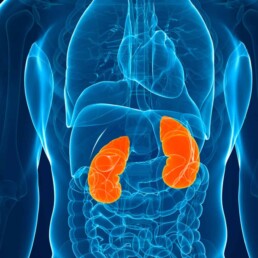Living with a chronic kidney disease diagnosis can be daunting, especially when it comes with a long list of dietary restrictions. Finding a balance between these limitations and ensuring optimal nutrition can be a significant challenge. However, one nutritional approach gaining traction for its potential benefits is the anti-inflammatory diet for kidney disease.
An Overview of the Anti-Inflammatory Diet
The anti-inflammatory diet isn’t a ‘diet’ in the traditional sense – instead, it’s a lifestyle choice that emphasizes the consumption of foods known to combat inflammation and minimizes those that may provoke it. Key components of this diet include:
- Fruits and Vegetables: Packed with antioxidants, vitamins, and fiber, they are pivotal in combating inflammation. Variety is key – the more colors on your plate, the broader the nutrient spectrum.
- Whole Grains: Opt for whole grains like oats, brown rice, and quinoa. They are rich in fiber and other essential nutrients that can help keep inflammation at bay.
- Lean Protein: Limiting protein intake, in general, is helpful for kidney disease. However, that does not mean that kidney patients should become vegetarians. Choosing lean protein sources such as fish, poultry, and legumes are preferred over red and processed meats.
- Healthy Fats: Foods rich in omega-3 fatty acids, like fatty fish, avocados, nuts, and oils like olive oil, have anti-inflammatory properties.
- Spices and Herbs: Certain spices and herbs, including turmeric, ginger, rosemary, and oregano, have recognized anti-inflammatory benefits.
- Tea and Coffee: These beverages contain antioxidants and have anti-inflammatory effects. However, we recommend that coffee consumption should be based on genetic testing for genetic variations in cytochrome P450 1A2 (CYP1A2), which impacts the rate of caffeine clearance. This testing is available through many non-specialized commercially available genetic tests such as ancestry.com and 23andme.com. Slow metabolizers of caffeine should avoid drinking more than 3 cups of coffee daily.
- Conversely, it’s recommended to limit or avoid processed foods, sugary drinks, refined carbohydrates, red and processed meats, and trans fats.
Join us to end the kidney disease epidemic and receive the FREE Report “5 Pitfalls to Avoid When Caring for Kidney Patients”
The Anti-Inflammatory Diet for Kidney Disease: A Potential Game-Changer
Chronic kidney disease often goes hand-in-hand with elevated inflammation levels. This inflammation can accelerate the progression of the disease and contribute to other complications, such as cardiovascular disease. The anti-inflammatory diet for kidney disease may help manage these symptoms by reducing inflammation, potentially slowing disease progression.
However, kidney disease patients often need to navigate specific dietary restrictions related to their condition, such as limiting potassium, phosphorus, and sodium intake. Therefore, it’s vital to collaborate with an Integrative or Functional medicine healthcare provider or a renal dietitian when planning to incorporate this diet into your lifestyle. Tailoring the diet according to each patient’s needs and type of kidney disease is crucial for success.
The bottom line
The anti-inflammatory diet, when implemented correctly, could prove to be a powerful tool in managing kidney disease. Always remember to consult with a healthcare professional before making significant dietary changes. They can provide tailored advice based on your unique nutritional needs and health status. As the saying goes, ‘Let food be thy medicine,’ and let this diet be a step towards better kidney health.






